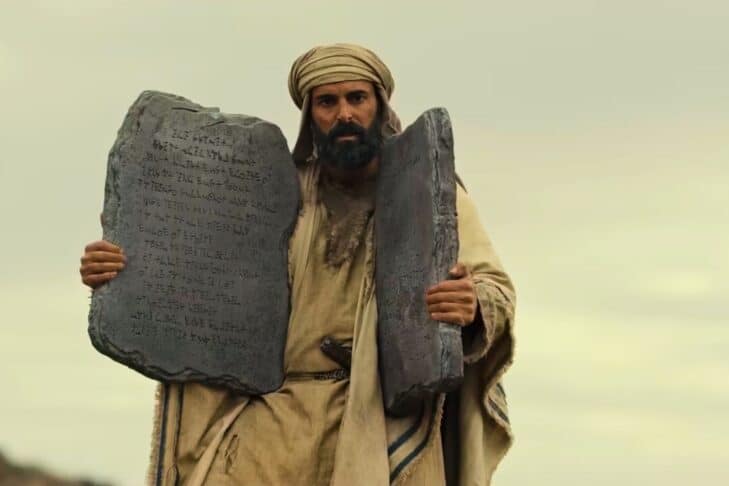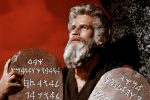“Testament: The Story of Moses” recently debuted on Netflix. It’s an ambitious series, attempting to capture Moses’s life—from his exile to his role as liberator and prophet—in three episodes. The recap is peppered with commentary from noted theologians and historians across Christianity, Islam and Judaism, drawing parallels between Moses’s tale and social justice issues of today. Here are six things to know before you embark on the series.
It’s really long! Which stands to reason, but be prepared: This isn’t a Saturday movie night selection. Each of the three episodes lasts about 90-plus minutes, so plan on 4.5 hours total.
It’s more like a big-screen blockbuster than a PBS miniseries. This isn’t a documentary in the traditional sense: While the series is billed as such, it’s actually a tightly scripted, scored re-enactment with some fairly graphic scenes—which is to be expected, but keep this in mind if you’re watching with young kids. “Part Two: The Plagues” is especially intense.
The actors are relative unknowns. Avi Azulay plays Moses—a huge undertaking for a relatively obscure Israeli actor (so obscure that his Instagram account is still private!). He got his start in local theater and rises to this occasion with brooding eyes, a commanding presence and understated yet intense delivery, even though he isn’t quite Charlton Heston.
The expert commentary keeps the tale moving. Some viewers might find the ongoing cuts from glossy cinematic tale to interview-style editorializing jarring, but it also provides necessary context and respite: There’s down-to-earth conversations with professor Rabbi Rachel Adelman (Hebrew College), Jonathan Kirsch (author of “Moses: A Life”), Rabbi Shlomo Einhorn and many more. It breaks things up.
It misses some details. Despite the length, the series skips over some key details for the sake of pacing, like Moses’s creation of the Aaronites and his construction of the tabernacle.
Reviews have been mixed. “What’s most upsetting is how easily the Netflix template gets mapped onto a two-thousand-year-old story, including a pre-credits teaser reel,” writes Ben Travers in IndieWire. Indeed: Sometimes it’s unclear if this is a dramatic exercise, an educational documentary or an attempt at prestige TV—people who could stand to learn more (like, perhaps, younger kids) might not want to sit through nearly five hours and three episodes; those who already know the story might be put off at the sometimes overwrought narration by Charles Dance (Lord Louis Mountbatten in “The Crown”), soap-opera-style acting and garish sets.
Have you watched? What did you think?









